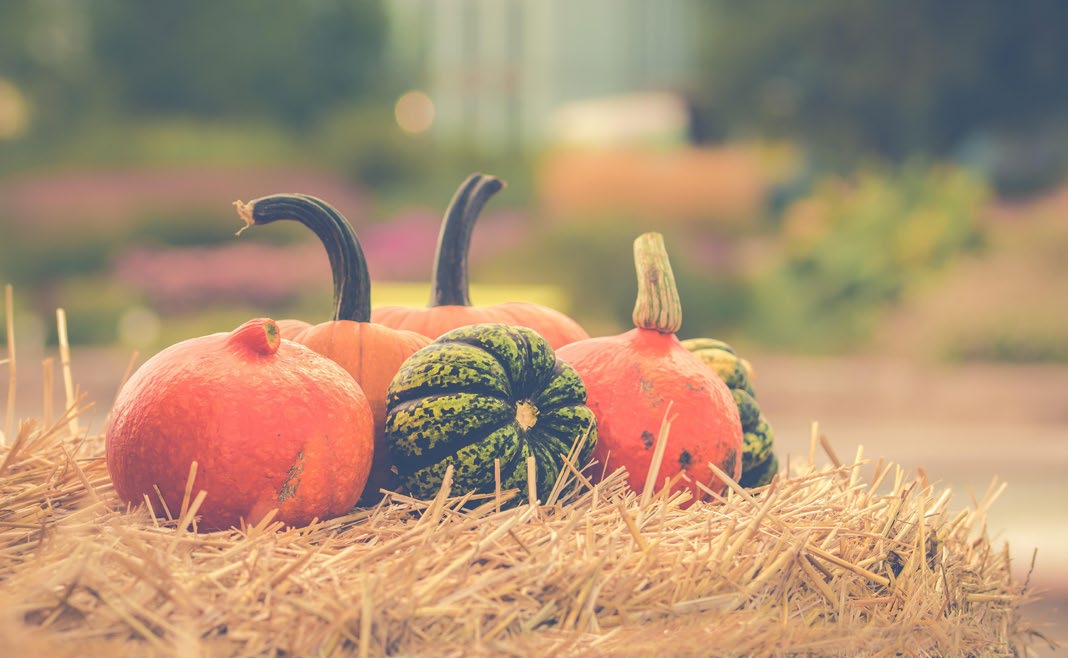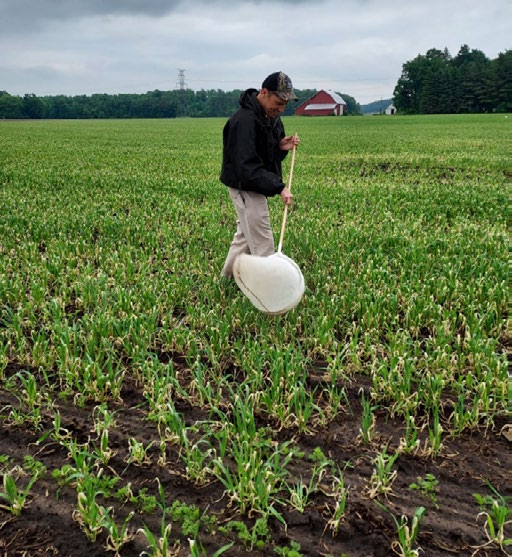
Strengthening Michigan's Vegetable Industry
DOWNLOADJuly 7, 2022 - Michigan State University Extension
Impacts
Our team aims to help vegetable growers learn about and incorporate new practices to help them reduce the risk posed by pests, improve their efficiency through new horticultural practices, and increase revenue through improved product quality and marketing. Of those who attended a Michigan State University Extension vegetable event, data from 2020-2021 surveys revealed:
- 88% learned something new and useful to help them manage risks.
- 87% reported making a change on their farm related to managing risks
- 82% learned useful information about increasing efficiency on the farm.
- 67% reported making a change on their farm related to increasing efficiency.
- 3,500 participants at in-person meetings, 161,000 reached in mixed media outputs (podcasts, trade magazine articles, newsletters, bulletins).
- 316 one-on-one individual consultations with stakeholders in 30 counties.
- $950,000 in federal, state and commodity group funds leveraged to support research that directly benefited growers in 2021.
Priority Areas
Michigan vegetable production takes place on over 3,000 farms, generating cash receipts of $442 million dollars.* The state’s climate and soils make it possible to grow vegetables in every county; however, commercial production is in specific areas having a long history of marketing and processing infrastructure. Michigan is among the top five states in the production of asparagus, snap beans, beets, carrots, celery, cucumbers, pickles, radishes, squash, tomatoes, turnips and pumpkins.* Our team consists of strategically placed educators who work with local vegetable growers in key regions and a team of on-campus vegetable researchers.
*USDA National Agricultural Statistics Service (2017). NASS - Quick stats. USDA National Agricultural Statistics Service
For More Information:
Ben Phillips, MSU Extension educator, phill406@msu.edu
Ben Werling, MSU Extension educator, werlingb@msu.edu
Great Lakes Fruit, Vegetable and Farm Market Expo and Michigan Greenhouse Growers Expo

Our team of three vegetable educators and six specialists organized 14 of the 67 educational sessions at the 2021 Great Lakes Fruit, Vegetable and Farm Market Expo and Michigan Greenhouse Growers Expo (GLEXPO), Dec. 7–9. This was our first in-person GLEXPO following the all-virtual year in 2020 due to the COVID-19 pandemic. The total attendance of 2,655 people also included 210 administrators, speakers, poster presenters, session coordinators and moderators. Our registration and survey data revealed that:
- GLEXPO sessions reached a broad audience: Registrants hailed from 66 of Michigan’s 83 counties.
- Over 800 registrants were vegetable growers: There were 424 registrants who identified as mixed fruit/ vegetable growers and 398 as vegetable growers.
- Attendees gained useful knowledge, and some intend to make changes: Across all vegetable sessions, 60% of respondents found their sessions to be very useful (n = 280/463).
It is difficult to understate the widescale regional impact of the GLEXPO, especially when considering the lack of attendance to and discontinuation of similar types of shows in Indiana and Ohio.
"Excellent educational sessions. I was also able to meet with crop input, equipment and irrigation supply companies on the trade show floor and discuss my needs. If it had not been for the Expo, I would not have found such valuable contacts." GLEXPO attendee
Regional Leaders
Members of the MSU Extension vegetable team led efforts to maximize reach across Michigan and beyond by partnering with 150 other members of the Great Lakes Vegetable Working Group and Great American Media Services, publisher of Vegetable Growers News (VGN) trade magazine.

One regional effort included a weekly live interview show and podcast called “The Vegetable Beet,” which generated printed content in a monthly VGN column titled “Great Lakes Veg Connections.” Articles were authored by staff from six universities to a readership of 160,000. The live podcast garnered 265 live listeners and 2,057 downloads in 2021.
Another regional effort is the Midwest Vegetable Production Guide. This annually revised guide is a summary of currently suggested fertility, cultural and pest management techniques and tools for commercial vegetable growers. It is a collaboration of land-grant universities from Illinois, Indiana, Iowa, Kansas, Michigan, Minnesota, Missouri and Ohio. A recent agreement with Great American Media Services made it free to distribute and increased the distribution of printed guides in Michigan by 300% from 250 to 1,000 copies with industry and conservation district partners also ordering copies for distribution alongside Extension offices. Our website, mwveguide.org, houses PDFs of the printed guide, as well as a navigable and filterable web app, accessible with phones, tablets and desktop computers. The website recorded 11,000 visitors in 2021.




 Print
Print Email
Email